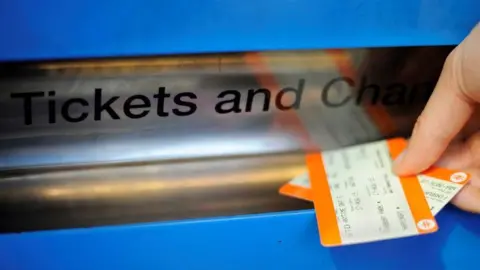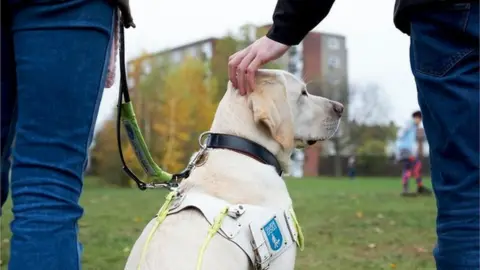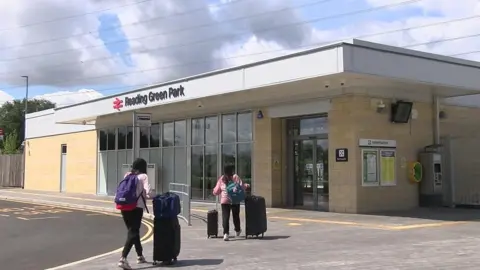Guide Dogs for the Blind criticises plan to shut train ticket kiosks
 PA Media
PA MediaPlans to close ticket offices at smaller train stations have been met with criticism by a disability charity.
Guide Dogs for the Blind, based in Berkshire, said the move would make those living with sight loss "less confident" when using public transport.
But the Rail Delivery Group (RDG), which represents train companies, said most passengers now buy tickets online or from vending machines.
A three-week public consultation has been launched.
 GUIDE DOGS UK
GUIDE DOGS UKOnly 12% of tickets were sold at ticket offices last year, according to the RDG.
But Chris Theobold, senior campaigns manager at Guide Dogs for the Blind, said staffed kiosks provided help with more than just buying tickets, especially to those who are visually-impaired.
He said ticket offices also help with "changing bookings" and "asking about space for guide dogs".
"If you're not confident that there's anyone there to assist you when these things go wrong, it's a real barrier."
Mr Theobold added that self-service machines that are touch-screen are "not accessible with sight loss".

Proposals would still see ticket kiosks remain in some large stations, with staff elsewhere on concourses to offer travel advice and help people with accessibility instead.
Reading's new Green Park Station, which opened six weeks ago, is an example of how rail firms hope these stations will run.
Staff are on hand to assist with purchasing tickets, but customers are generally expected to use self-service vending machines.
When a station is not staffed, machines, or online purchases using a smartphone, are the only option.
Jacqueline Starr, RDG's chief executive, said the changes would be phased in "gradually" over the next three years.

Follow BBC South on Facebook, Twitter, or Instagram. Send your story ideas to [email protected].
